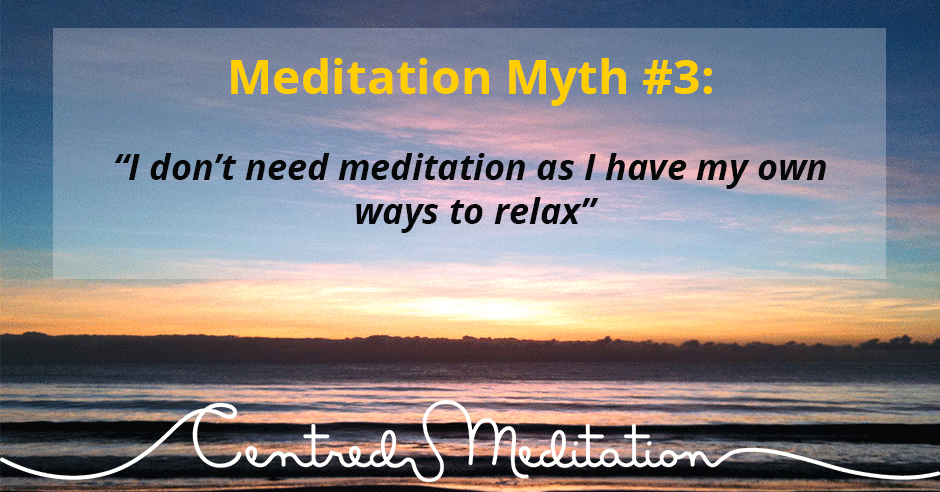Meditation is not the same as watching TV.
During meditation, a particular physiological response is triggered in the body known as the relaxation response, a term coined by Dr Herbert Benson.
The relaxation response is the process of de-escalating the stress response and inducing deep relaxation through the activation of the parasympathetic nervous system.
In this state, the following physiological reactions begin to occur:
- Breathing becomes slower and deeper;
- Heart rate decreases;
- Blood pressure reduces;
- Slow alpha waves in the brain increase;
- Digestion improves;
- Stress hormones decrease;
- Immune system improves;
- Mental clarity heightens;
- Memory enhances;
- Concentration improves;
- Productivity is boosted;
- Muscles relax;
- Calm is experienced.
You can understand why putting your body into this state regularly would be a good thing, right? Well it sure is indeed. Meditation has been an area of interest for researchers since the 1950s and even more so in the last decade . There are now thousands of scientific studies which all give evidence to the countless benefits that regular meditation has on our health and well-being.
Some of the benefits of meditation include:
- Increased focus and attention;
- Improved learning ability and memory;
- Enhanced decision making ability;
- Increased productivity;
- Greater creativity;
- Improved ability to multi-task;
- Enhanced ability to process information;
- Decreased feelings of anxiety;
- Lower tendency to worry;
- Reduced anger;
- Decreased stress;
- Enhanced mood and emotional stability;
- Improved sleep;
- Higher longevity;
- Improved immune function;
- Increased happiness.
It’s pretty mind-boggling, huh?! Put simply, if meditation was a form of medication, it would be being prescribed left, right and centre! So what are you waiting for? Reserve your armchair now.


